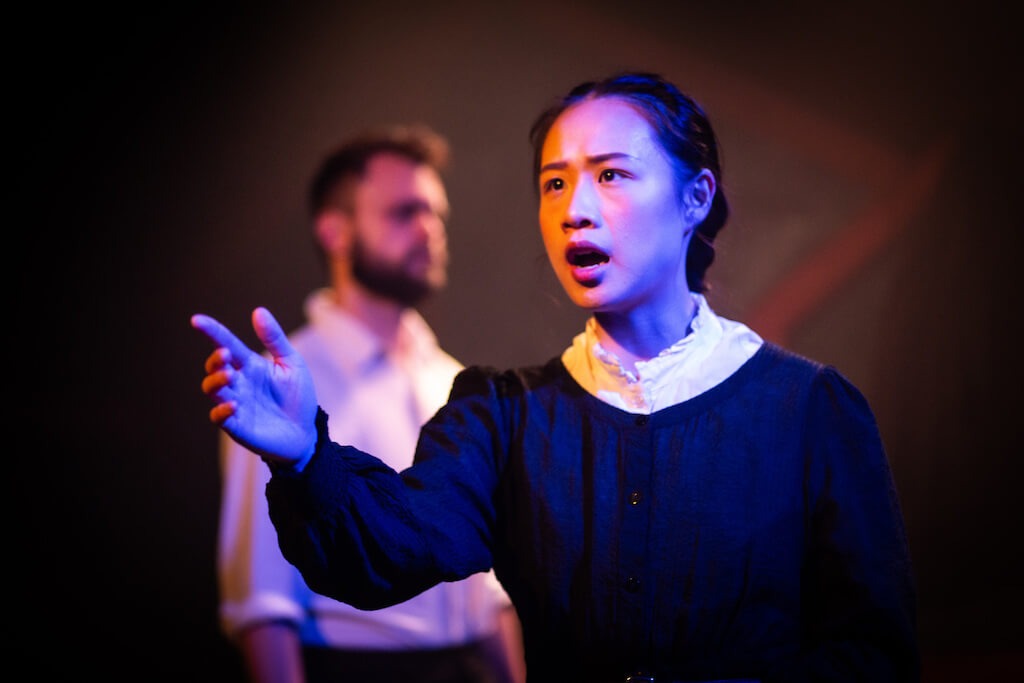
Following their success at the Southwark Playhouse with I know I know I know, up-and-coming young theatre company Do Not Alight are back with another topical, important issue-based piece of new writing for the Jermyn Street Theatre’s Footprints Festival.
Also written by Flora Wilson Brown, The Beautiful Future is Coming takes us on a 250-year journey, stopping off at three different points in time to tell us about the state of the climate, and what scientists/society are discovering/doing about it.
Dualogue dialogue takes centre stage with this piece as the play is essentially a compilation of three two-handers. The writing expertly holds the audience captive by only ever giving us the exact amount of context necessary to keep us interested and guessing, thinking that we can predict what will happen next before pulling the rug out from under us with a totally different tragedy than expected, despite in hindsight being completely foreshadowed.
However, as is often the case with multi-narrative plays, I found that the middle storyline was definitely the strongest. Perhaps this is because it is set in the same timeline that I occupy, but either way, the characters and events we encountered in the 2027 setting just felt as though it had much more dimension.
While Sabrina Wu gives an impassioned portrayal of Eunice, and the character’s experience of the debilitating sexism women in STEM faced in the 1850s, telling an important tale of how much scientific advancement we potentially (probably) could have made had we just listened to them -though her part of the story did feel a little beside the point of what the play was really about.
The point being, as I understood it, that firstly – even though we have activists doing all they can trying to get our society to listen to the
facts and take action – no one really is. Then secondly, that there is still light to be found in the impending darkness of the climate crisis, and we all need to remember that rather than focusing on the fear. These messages were conveyed throughout but were driven home by the monologues so beautifully delivered by Martha Watson Allpress and Pepter Lunkuse in the final moments of the play.
George Fletcher also gave a very impressive performance(s) as every man in the play – giving each a distinctive vocal and physical quality that meant we were never unsure as to which one he was at any given time, with Harry Tennison’s direction really shining in these transitions.















